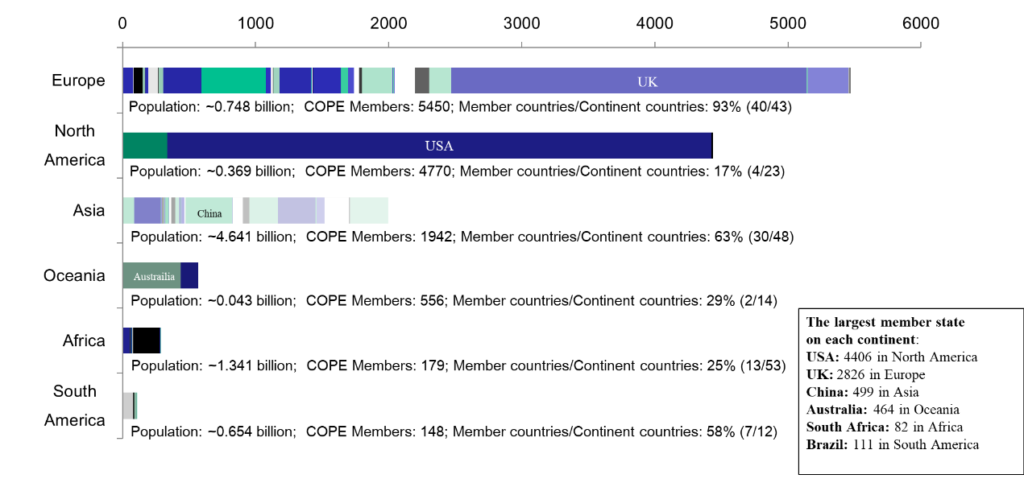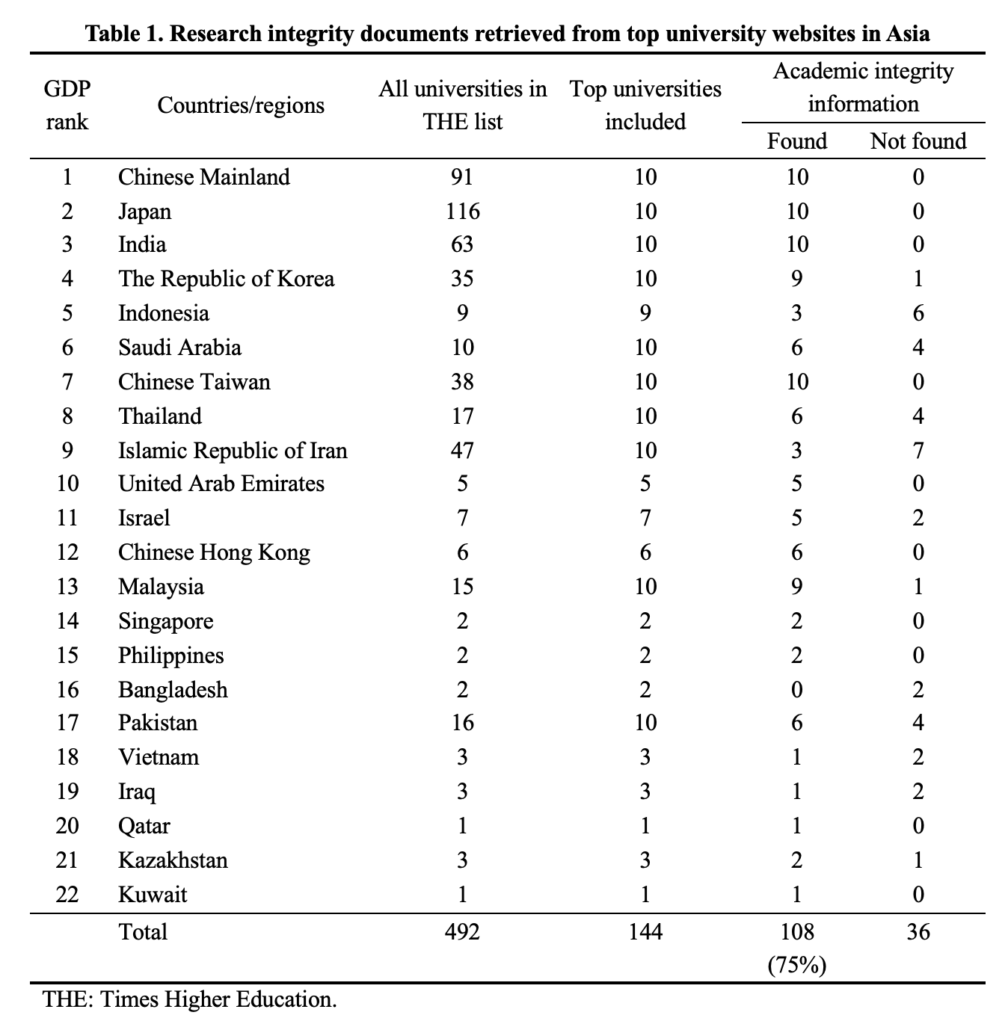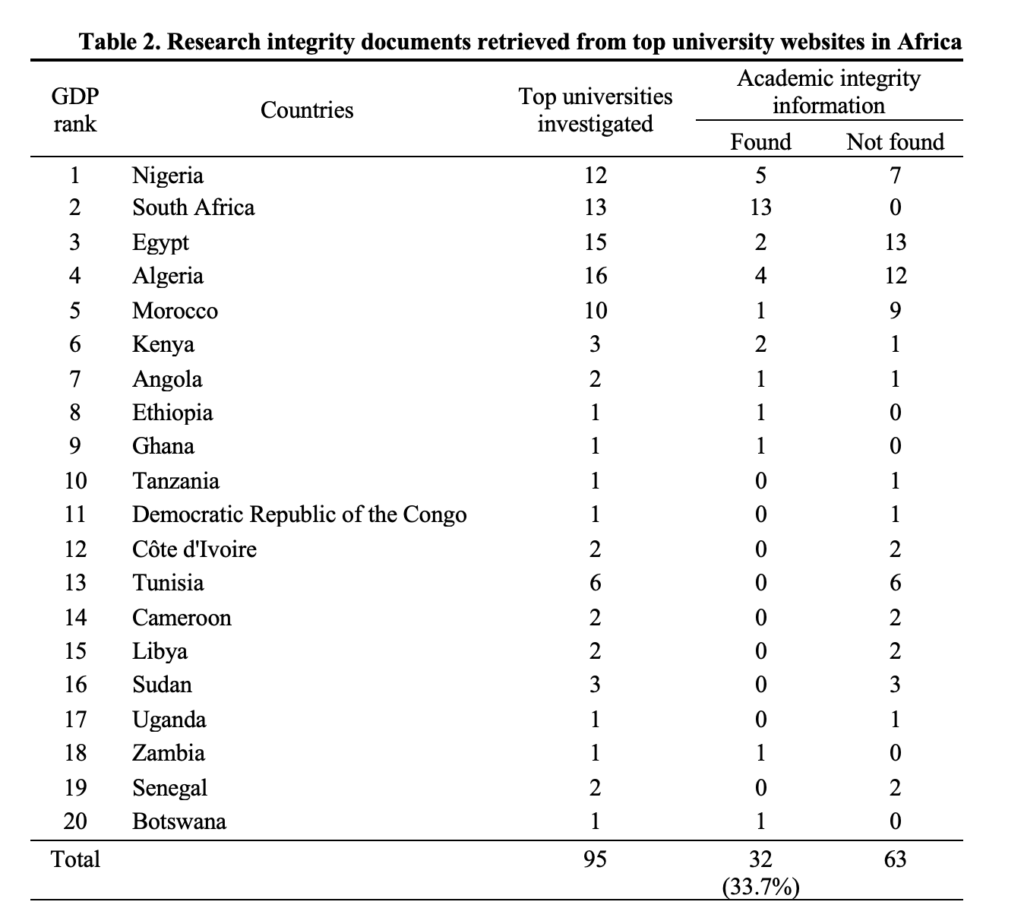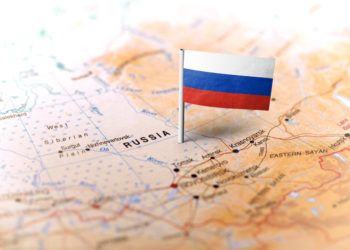Professor Yuehong (Helen) Zhang is the Managing Editor of Bio-Design and Manufacturing. Previously she was the Chief Editor of Journal of Zhejiang University-SCIENCE, and Vice-President of the Society of China University Journals. She had served as a council member of ALPSP (2011–2016) and a Crossref Board Member (2014–2017). She received COPE’s first grant awarded in China in 2011 and has published many papers focused on anti-plagiarism policies in different disciplines, including several short papers in Nature and the book Against Plagiarism: A Guide for Editors and Authors. Recently she was invited to write a paper on academic integrity by the journal Forensic Sciences Research, in which she proposed a new idea – the academic integrity awareness index:
“The academic integrity awareness index covers several aspects, including education, transparent policy, standardized responsibility, group awareness, and industry supervision. It could be used to create cultural consciousness of research integrity as the bottom line in the academic world. Moreover, it can be measured exponentially, as we tried to demonstrate in this investigation.”

How did the idea of an academic integrity awareness index come to you?
In September, 2021, at the first Chongqing University Webinar on Research Integrity, Dr. Elisabeth Bik, science integrity volunteer, Dr. Nandita Quaderi, Editor-in-Chief of Web of Science at Clarivate, and I shared our opinions on the topic of academic integrity. My presentation was mainly based on an article “The next steps in academic integrity — education, awareness, norms, duty and law” that we have recently published in Forensic Sciences Research. In order to write the article, we completed a series of surveys in order to observe the awareness level of research integrity among the six continents of world. After the survey, the concept of an “academic integrity awareness index” started to form in my mind, and I hope there will be more discussions across the linked spheres of publishing and research on this proposal.
What are the results of the surveys?
As of August 4, 2021, using the original survey methodology, the following internet survey information has been updated and supplemented. Specifically, we present the following: 1) global distribution of Committee of Publishing Ethics (COPE) membership on six continents; 2) global distribution of “Integrity” or “Ethics” journals; 3) academic integrity awareness in European higher education institutions; and 4) academic integrity awareness in the top universities of Asia and Africa. Based on the present results and interpretation of these surveys, it became clear that global awareness of academic integrity is imbalanced, especially when considering the densely populated areas in the world.
- Global distribution of COPE membership
Current United Nations Population Data shows that the world population has exceeded ~7.79 billion, and that half of the population under the age of 30 live in developing countries. From the perspective of world population density, we looked at the distribution of COPE members on six continents. As of June 29, 2021, the total registered membership of COPE had reached 13,065 worldwide (institutions and individuals). According to our statistics, the ratio of COPE membership to the populations in the six continents is distributed as follows: 5450 members/748 million in Europe, 4770/369 million in North America, 1942/4641 million in Asia, 556/43 million in Oceania, 179/1341 million in Africa, and 148/654 million in South America (Figure 1).
Clearly, COPE membership is disproportional to population density. The highest COPE membership rates occur in Europe and North America, with the primary countries in each region being the UK (2826) and the USA (4406). If we take COPE membership as an index of academic integrity awareness in the publishing industry and compare it between the most densely populated continents — Asia and Africa — even though China has the highest membership in Asia (499), and South Africa has the highest on the African continent with 82, these rates fall well below what is seen elsewhere.

- Global distribution of “integrity” or “ethics” journals
For the academic integrity awareness index proposed in this paper, our second step was to elucidate the number of academic journals on this topic that are distributed around the world. For this paper, we searched Ulrich’s Periodicals Directory Database by manual comparison of journals’ publication scope with keyword “ethics”, “integrity” and “moral”. There are 237 active journals that meet these criteria within Ulrich’s academic category, which has about 162,794 journal titles in total. Figure 2 shows the geographic location of the 237 journals, most of them in English. The USA has the most journals (90), followed by the UK (48), The Netherlands (20), India (10), and Germany (10), with lower numbers of periodicals from developing countries.
These data correlate to data shown in Figure 1 on COPE membership distribution. The number of journals related to research integrity and ethics topics in the world’s most densely populated areas is insufficient.

- The level of academic integrity awareness in European higher education institutions
We know that education can raise awareness of research integrity, but education is also imbalanced globally. We took a look at how academic integrity is perceived and managed in European higher education institutions. First, we reviewed the European (27 countries) Perspectives of Academic Integrity Maturity Model (AIMM) that was based on the project entitled, “Impact of Policies for Plagiarism in Higher Education Across Europe” (IPPHEAE 2010–2013), which aimed to explore how academic integrity was understood and managed in different parts of the European Union.
Figure 3 shows that across 27 EU countries, education and awareness of research integrity vary greatly. Although in recent years there have been significant advances and innovation in research and policy improvements on research integrity in Europe, controversy still exists, and an imbalanced awareness of research integrity across the 27 EU countries persists as well.

- Awareness of academic integrity in the top universities of Asia and Africa
Building upon results from the previous surveys, our next goal was to understand how the top universities in Asia and Africa, two continents with large population densities and many young people, are aware of research integrity. Our approach was to observe whether there are transparent research integrity guidelines and policies in these top universities’ education systems.
First, according to data presented on current websites of Statistics Times 2020 GDP Ranking and 2021 Times Higher Education (THE) rankings, we selected the top 20 countries in Asia and Africa, and then selected the top ten universities in each country. If less than ten occurred in THE, we referred to another resource (uniRank) to reflect the local research integrity and ethics education information. Using the methodology described above, we followed the approach of searching the internet for each university to complete the two lists below, expanding information from Asia and Africa.
Top universities in Asia research integrity information via their websites
Browsing the above-referenced websites, we conducted a cursory review of the policies and regulations related to academic integrity or ethics on each official university website, and then searched the keyword “integrity”, “ethics”, “plagiarism”, or “misconduct” from the official university website via Google or Baidu. It is worth noting that the search results of “not found” do not mean that the university website does not provide information, but simply that it was not found using those search terms. In sum, we retrieved documents offering research integrity information on the official websites of 75% (108/144) of the top universities in the top 20 Asian countries (including Chinese Taiwan and Hong Kong regions ) by 2019 Nominal GDP, which implies that most Asian universities attach great importance to research integrity education (Table 1).

Top universities research integrity information via their websites in Africa
As with Asia, we searched keywords “integrity”, “ethics”, and “plagiarism” on the official university websites via Google or Baidu. For some, where university websites only used French and Arabic, we searched for the keywords translated into French, “intégrité”, “éthique”, or “plagiat”, corresponding to integrity, ethics, and plagiarism in English.
We found research integrity documents on the official websites of only 33.7% (32/95) top universities from the top 20 African countries by 2019 nominal GDP, which implies that most of the universities in Africa are lagging in attention to research integrity education (Table 2).

From these data, we can be certain that across the six continents, there is a serious imbalance in education and awareness on publishing ethics and research integrity. Although Asia and Africa are the two continents with the highest population density and contain many developing countries, we find hope in the fact that both continents are making progress in this effort over the past few years, especially in Asia where the percentage of retrieved research integrity documents from the top university websites is 75%, as compared to 33.7% in Africa.
What next steps do you propose on academic integrity education?
We know that education, awareness, and norms of research integrity are critically important. Building upon these important values, we have presented a new index, the “academic integrity awareness index” for discussion as one of many potential next steps on behalf of the global community committed to integrity. Although we believe this will contribute to fostering an environment of integrity, we recognize that it is not enough.
Since the seventeenth century gave rise to normative behavior among scientists, scientific research integrity has become a significant topic of public interest. The issue is still discussed at the moral level today, however, as legal approaches continue to develop. This quandary is similar to copyright issues, recognizing that economic rights are featured in the foreground in legal measures, while moral rights may be less prominent. For example, the Trade Related Aspects on Intellectual Property Rights (1994) contains no provisions on moral rights within its articles. Thus, in exploring next steps, as we advance with time from internet technology to ideology, let us consider how the whole culture of academic integrity awareness from education, awareness, norms to duty and law might be improved. Of course, this is a complex research topic to be discussed among academic organizations and experts in each field, including those in diverse fields of science and law.
Discussion
3 Thoughts on "Does the World Need an Academic Integrity Awareness Index? An Interview with Helen Zhang"
Thanks Tao and Helen, excellent post, and great work you are doing.
Most interesting!!!
Really interesting and thought provoking article Helen and Tao. We will incorporate this into our Trainings and Webinars when we deal with research and publishing ethics.



